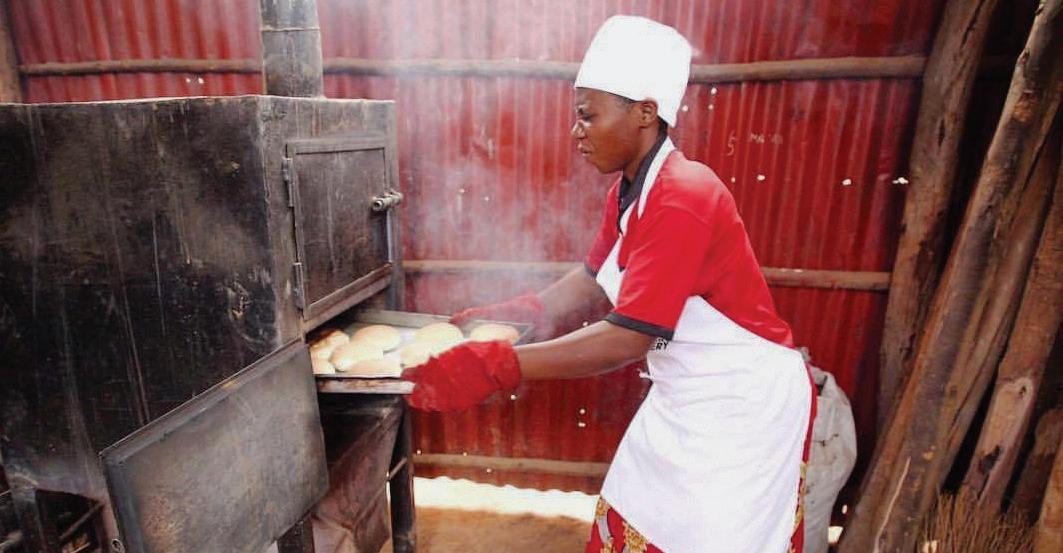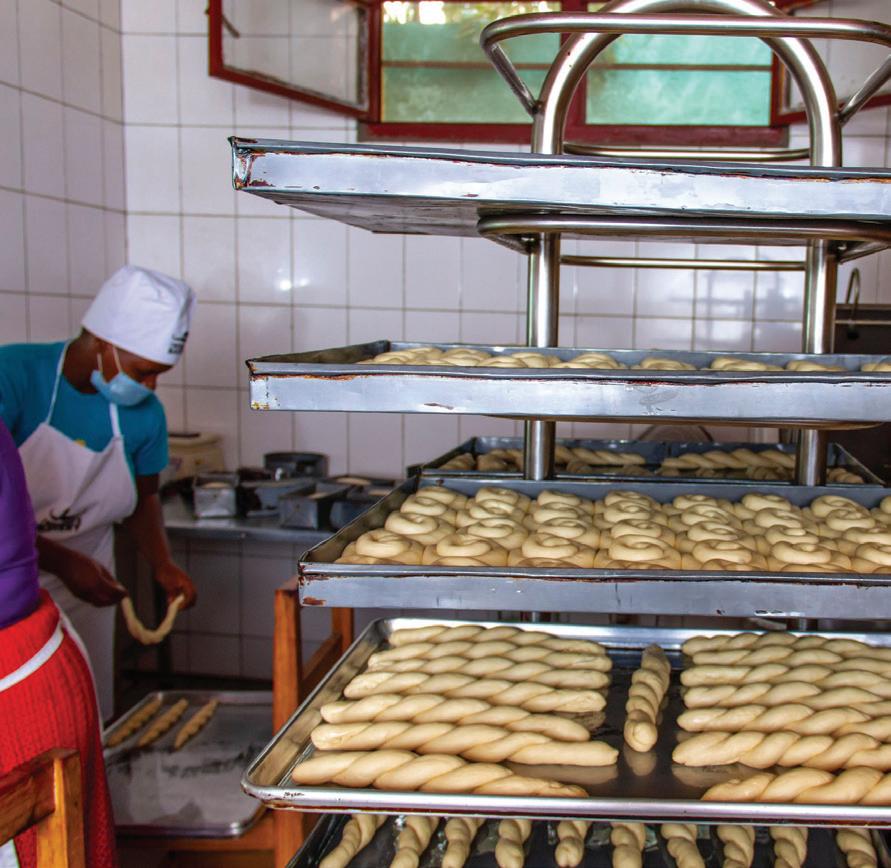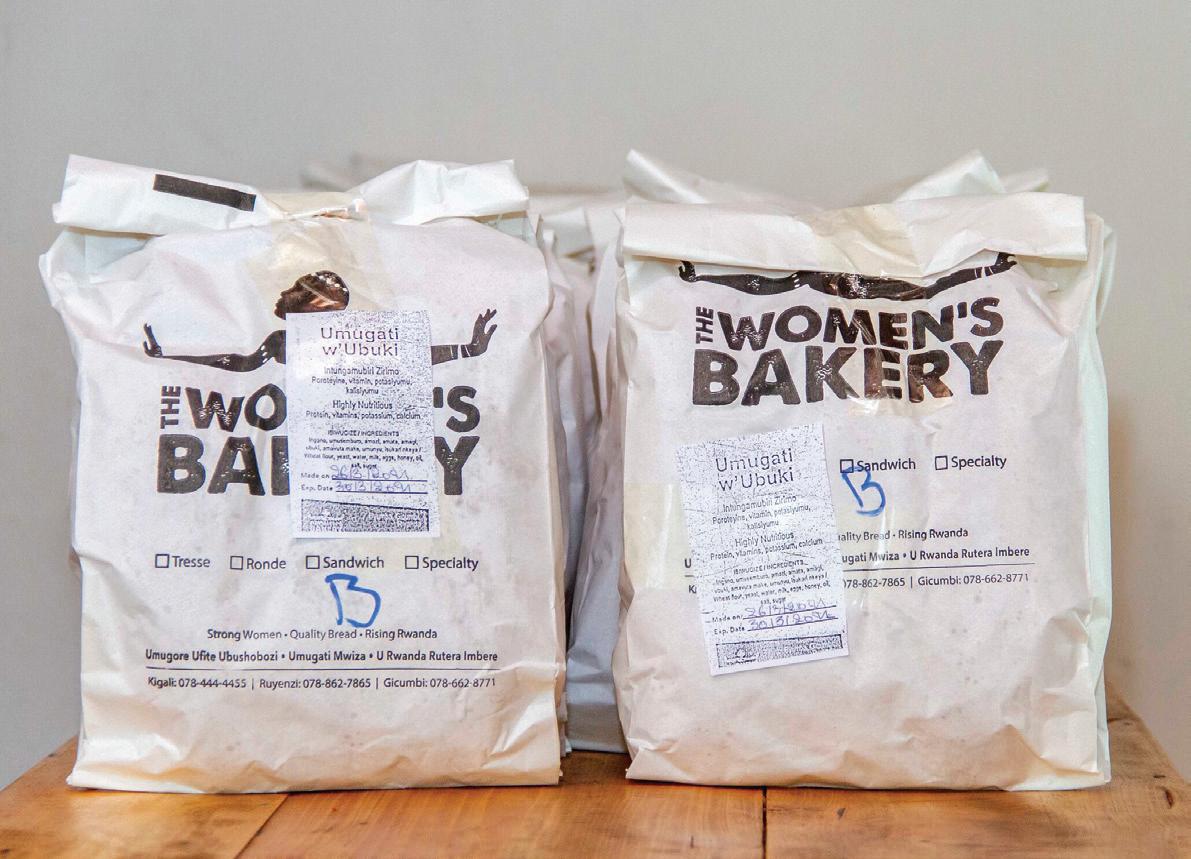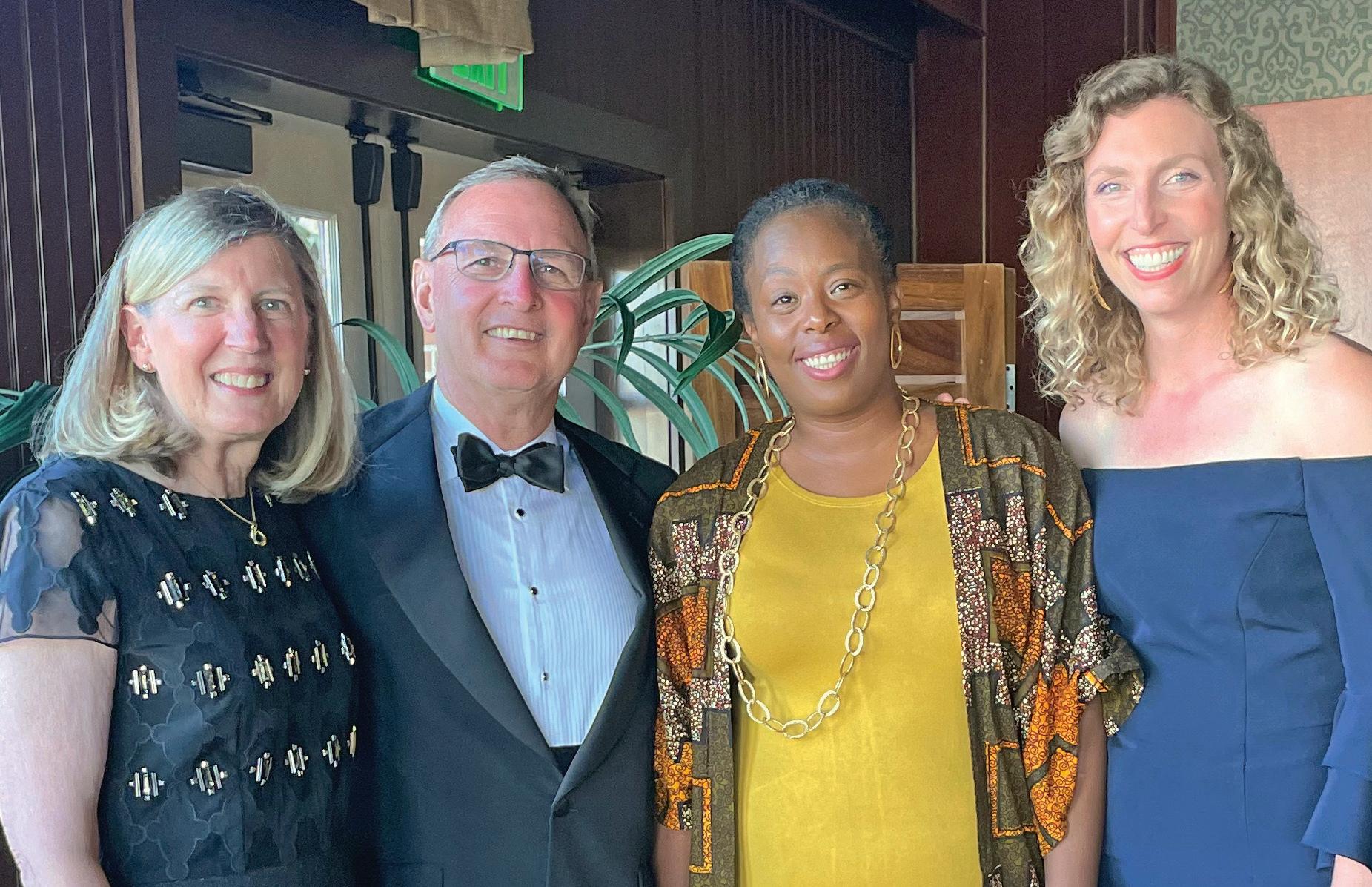
2 minute read
CULTURE JLS ® gives back
from JLS Magazine #4
The Women’s Bakery rises to the occasion with JLS’ support
JLS’ support of the Rwandan project helped keep it afloat during a global pandemic and massive supply chain disruptions while transforming lives with nutritious bread.
When you meet Markey Culver, it’s hard not to catch her infectious energy. Culver, Founder and CEO of The Women’s Bakery in Rwanda, has been working hard to keep her missiondriven project afloat amidst the various social and economic issues that the world has faced in the past few years. The Women’s Bakery’s mission is to socially and economically empower women and create access to nutritious bread at affordable prices–and they’ve been doing just that, which is no small feat given the circumstances. From ingredient scarcity and steep price hikes to massive labor shortages – all alongside skyrocketing growth in product demand – bakeries around the world are met with immense challenges while being called to the task of feeding the world. The three locations of The Women’s Bakery are no exception.
“2021 was a worse year for COVID than 2020 for The Women’s Bakery. We had to pause operations four times that year,” says Culver. “There are roughly 3 million elementary school kids in Rwanda, and schools were closed for ~9 months. It was a tough year for the country. Despite all of that, The Women’s Bakery sales grew by 120%.” Thanks to sponsors such as JLS, The Women’s Bakery was able to make it through.
But amidst that growth, supply chain shortages in 2022 have become an additional obstacle to overcome. In Rwanda, 80-90% of wheat is typically imported from Ukraine. Due to war in Ukraine, Culver’s bakeries and the rest of Rwanda are left to decide between two alternatives–either find somewhere else to import grain from or find a way to buy it locally. In the meantime, the cost of wheat in Rwanda has increased a staggering 80% from March of 2020 to June 2022.
Rolling up their sleeves and meeting the problem head-on, The Women’s Bakery is exploring partnering with a group of 800 small-holder farmers in order to produce wheat locally to supply ~25-50% of the wheat The Women’s Bakery needs. And, as Culver adds, “This could make our business even more sustainable.”
An integral part of The Women’s Bakery’s program is to provide a consistent food supply to the area’s children, which is one of the reasons why facilitating the growth of the project is so vital. Via their One Bread Project, which both JLS and other BEMA (Baking Equipment Manufacturers Allieds) members have donated to, they have been able to serve 11,000 kids a day at 14 different schools by offering the schools a sustainable option for payment. This sustainable option is a sliding pay scale contract that allows them to gradually ease into paying for the bread over several years. The impact that project has had thus far is nothing short of amazing. At one affiliated school, attendance increased from 70 to 98% when bread started to be provided to students via the project, and at least 5 schools have already requested to be customers as a result of the school headmaster’s testimony. However, right now, The Women’s Bakery doesn’t have the capacity for that growth.
In fact, The One Bread Project has a goal of serving 1 million elementary school kids per day in a country where there are 3 million. The total market share is ~$18 million annually for serving this demographic, which would mean increasing production and delivery capacity significantly for The Women’s Bakery.
For that to be possible, The Women’s Bakery needs a serious capital injection in order to meet the increase in raw material costs and supply chain disruptions, as well as plan to see itself through.



To learn more, scan the QR code or visit womensbakery.com/home








